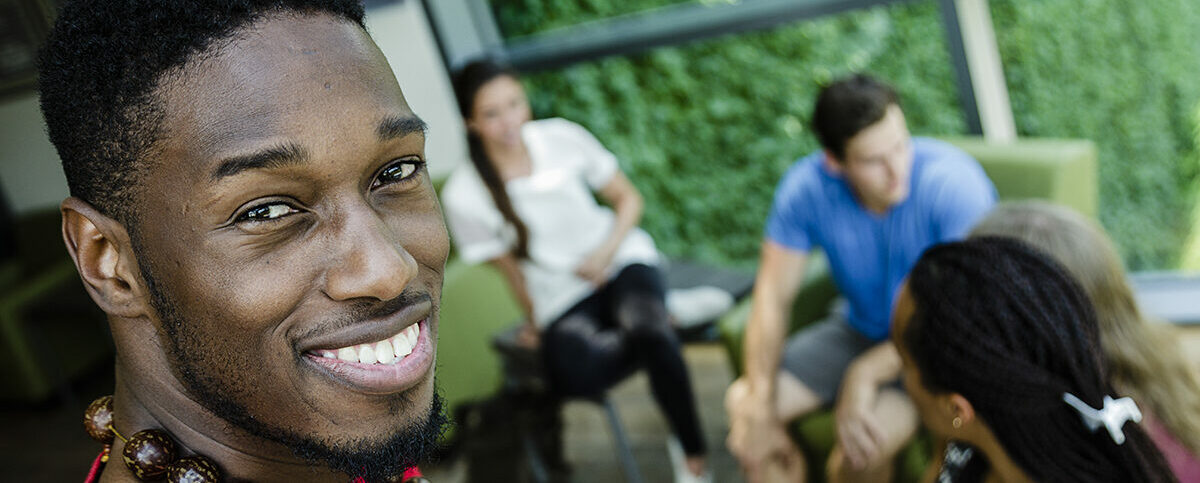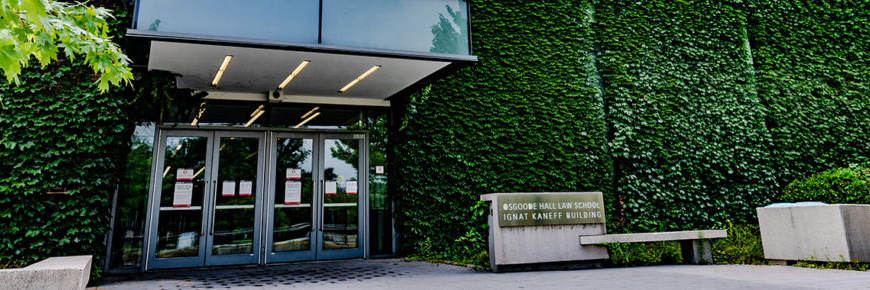
Canada’s leading law school and the country’s largest school board unveiled a program that breaks down barriers for Black high school students considering practicing law.
Raise the Black Bar (RTBB) is a groundbreaking initiative involving Osgoode Hall Law School at York University, the Osgoode chapter of the Black Law Students’ Association (BLSA Osgoode) and the Toronto District School Board (TDSB). It officially launched during a ceremony at Osgoode on Nov. 30.
“We believe this is the first program of its kind focusing specifically on the needs of Black high school students,” said Bunisha Samuels, president of BLSA Osgoode and a third-year law student at Osgoode. The program was initiated by members of BLSA Osgoode who wanted to bridge the gap to university and create more opportunities for Black students in the legal sector.
“I’m optimistic that Raise the Black Bar is going to help create a whole new generation of Black law students and Black lawyers,” she added. “I wish I had had this when I was in high school.”
Osgoode Hall Law School Dean Mary Condon said that Osgoode’s goal to be the most diverse, accessible law school in Canada is integral to its vision for excellence.
“Beginning with the introduction of our holistic admissions policy 15 years ago, Osgoode has been a leader among Canadian law schools in breaking down barriers to inclusion,” she said.
“We’re proud and very excited to continue that tradition by partnering with Canada’s largest school board to create the Raise the Black Bar program,” she added. “Like the TDSB, we believe to our core that diversity is our strength and the path to true excellence in the legal profession and beyond. RTBB will open the door to a new generation of talented lawyers and we can’t wait to witness their amazing achievements.”

Colleen Russell-Rawlins, TDSB director of education, praised the new program as a potential springboard into legal careers for Black students.
“The Toronto District School Board is committed to improving the experiences and outcomes for Black students and is proud to partner with Osgoode Hall Law School for the Raise the Black Bar initiative,” she said. “This initiative is an incredible opportunity for Black secondary students to learn more about the diverse career options in law, enhance their understanding of legal education and pathways and connect directly with Black law student mentors.”
Samuels said the program is open to all Black students across the TDSB’s 110 secondary schools, with a focus on those in grades 10, 11 and 12. As the program ramps up, RTBB will give students the opportunity to participate in small group mentorship meetings with practicing Black legal professionals and Black law students.
Among other things, students will learn about diverse career opportunities in law, pathways to law school and financial aid. Mentors will also help students navigate barriers unique to Black students and will debunk myths about law, law school and legal careers. They will also coach them on how to build a winning resume and cover letter and how to network in professional and academic areas of interest prior to entering law.
As RTBB evolves, high school students will also be eligible to participate in additional outreach events, including presentations from Osgoode administration and Black law students focused on the admissions process and what it means to be a legal professional.
In addition, RTBB organizers are planning law firm and court tours to showcase a typical day in the life of a lawyer, judge or court clerk, a mock trial to help develop skills such as written and oral advocacy, and a panel event with select Black lawyers at the annual Know Your Worth youth empowerment conference, which is open to all Black students.
